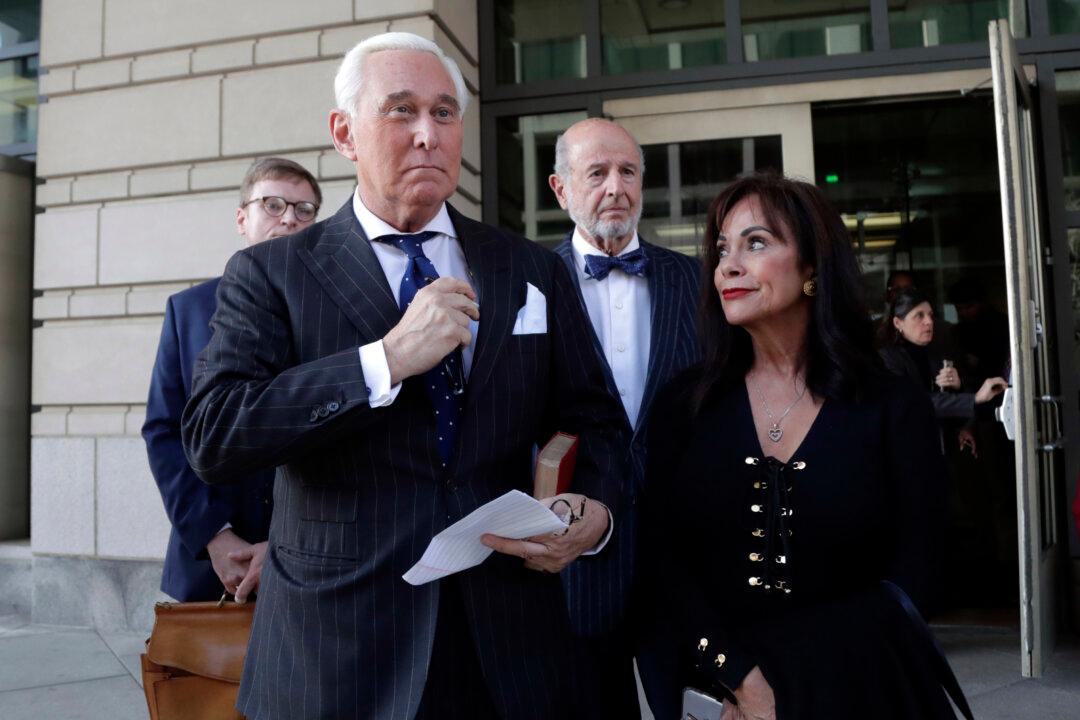Four prosecutors from the Justice Department (DOJ) have withdrawn from their roles in the Roger Stone case, following the department’s decision to reduce the amount of prison time they are recommending for the Trump associate.
Prosecutors Aaron Zelinsky (pdf), Jonathan Kravis (pdf), Adam C. Jed (pdf), and Michael Marando (pdf) filed notices withdrawing from the case on Feb. 11. The move follows the department’s decision to override the sentencing recommendation of seven to nine years made by the federal prosecutors.




